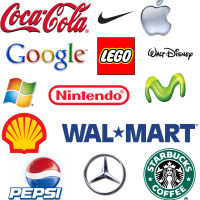For most people, owning your own business sounds like a dream come true. You get to be your own boss, choose your hours, and make all the important decisions about how you’ll allocate your resources. That’s how it sounds…
Any real business owner knows the truth. That running a small business is much more complicated, time-consuming, and challenging that most people make it out to be. Even worse, running a small business is often less profitable than those on the outside believe.
That vast majority of small business owners earn a salary of exactly how much is left in their bank account after paying all of the expenses. At the end of some months, that may amount to a nice living. On others, well, it’s not a pretty picture.
With out proper planning and management, those margins can easily go negative. Quite honesty, that’s exactly how most small businesses go under.
Opportunity Favors the Prepared Mind
Now it doesn’t have to be this way. There’s no reason why your business has to live month-to-month with no real guiding philosophy or mission. Here’s the secret: Running a successful business is not rocket science. Nearly anyone can do it.
Surly you’ve met some at least one successful business owner that you were certain that you were smarter than. You probably wondered, “How can this mental midget run a successful company, while I can barely stay employed?”
Frankly, I don’t know how your acquaintance does it — maybe he or she inherited the business.
What I do know is how I manage to do it. And trust me, I’m no brain surgeon. So what’s my secret? It’s simple: I rely on management consultants. Most business owners do. That’s why they’re still in business.
The way I see it, who needs a prepared mind, when I can rent one at a very reasonable cost? It’s the opportunity that I’m seeking, after all, I’m not trying to earn an MBA. Right?
Building a relationship with a good management is often the difference between a flourishing business and a dream that went splat.
Making you into a Manager
Most entrepreneurs jump into a business with big ideas and lots of optimism. Typically, it’s not enthusiasm that we lack, it’s discipline… and probably foresight too. I mean, why else would we have been so enthusiastic about starting a business? Just kidding.
That’s why it’s so important to seek wise council. A good small business management consultant can help you craft a plan that set realistic goals and benchmarks. A management consultant will plan for setbacks, refunds, and unexpected costs that an inexperienced business owner wouldn’t foresee or know to plan for.
More often than not, it’s not the product that drops a business dead in its tracks. It’s unexpected costs and unexpected revenue hiccups during the growth process. These are exactly the reasons most small business owners need a management consultant.
You can’t do it all yourself, so stop pretending that you can be all things to all people all the time. Sorry to be the one to break it to you, but you don’t score 100% in every aspect of management.
Believing that you somehow aced the management test is a sure sign that you’re in over your head. If you want your organization to grow, you can’t approach ever challenge alone. It’s a trap that you don’t want to find yourself in, trust me. If at no other times at all, every successful business needs management consulting during two phases.
Start-up and No Man’s Land
These are two of the most often written about stages of business development, but for very different reasons.
Most entrepreneurs love to fantasize about the start-up phase, mainly because it seems like the sky’s the limit and there are few if any limitations on where your business might be able to go. It’s an exciting time in the life of a business because it’s’ where you put your concept into action, finally getting real world feedback.
Obviously, start-up is also the time in which planning is absolutely essential. This includes staffing, strategic partnerships, and financial forecasts.
For any right-brained idea-man, or idea-woman, who’s launched a start-up, it becomes immediately apparent that you’re in over your head. If you’re overly meticulous, you may find yourself completely bogged down in routine tasks, never having enough time to develop new strategies and processes.
In either case, the clock is ticking and you’ll soon find out if you can hack it all by yourself…
Or you can do the smart thing and hire someone to teach you to become a better manager. Business management consulting is a great way to elevate your game quickly, by outsourcing the learning curve to someone who’s already been there and done that.
No Man’s Land is an entirely different story. Just as the name implies, this stage in the growth of a business is not so fun or exciting. It’s the point at which you business has grown large enough to no long be considered “small,” but is far from being “big” either.
No Man’s Land is the point at which you have to scale up and go big, or else begin to atrophy. In many ways, it’s a lot like the start-up phase, without all the illusions that made it so thrilling.
Because it involves even more fundraising, organizational efficiency, and staffing, No Man’s Land is where a business management consultant becomes no longer necessary, but mandatory.
Creating the Business You Want to Run
The best part about a good business management consultant is that they become an asset, rather than a cost. The changes they suggest should make you money, or at the very least free up time or money that can be better leveraged elsewhere.
After a basic, surface level analysis, it’s easy for any veteran consultant to spot the weaknesses in your market position. I hate to burst your bubble, but they’re there, even if you can’t see them.
A consultant should be able to analyze the marketplace your business operates in and offer up suggestions that will put your business in a better competitive position.
With better positioning, you company will become more marketable. With redundancies and other bottlenecks eliminated, your business will reduce costs, increase production, and become more profitable.
That’s why I always tell people that a good small business management consultant is a business asset. Rather than costing you money, a good consultant will make you money. Over the long run they’re advice will be worth exponentially more than it cost to acquire it.
With the right management and guidance, your company can become a mission driven machine that runs smoothly and rallies around the cause or purpose you initially envisioned. Businesses that are built to deliver on a clear purpose or goal are actually much easier to grow and maintain than a hastily cobbled together organization.
It’s really not all that surprising, when you think about it. Many of the biggest, most profitable companies in the world, the Apples, the Nordstroms, the Whole Foods, etc. are also the most inspiringly single-minded.
That’s the kind of business you originally wanted to own anyway.



 16. Jul, 2013
16. Jul, 2013 



